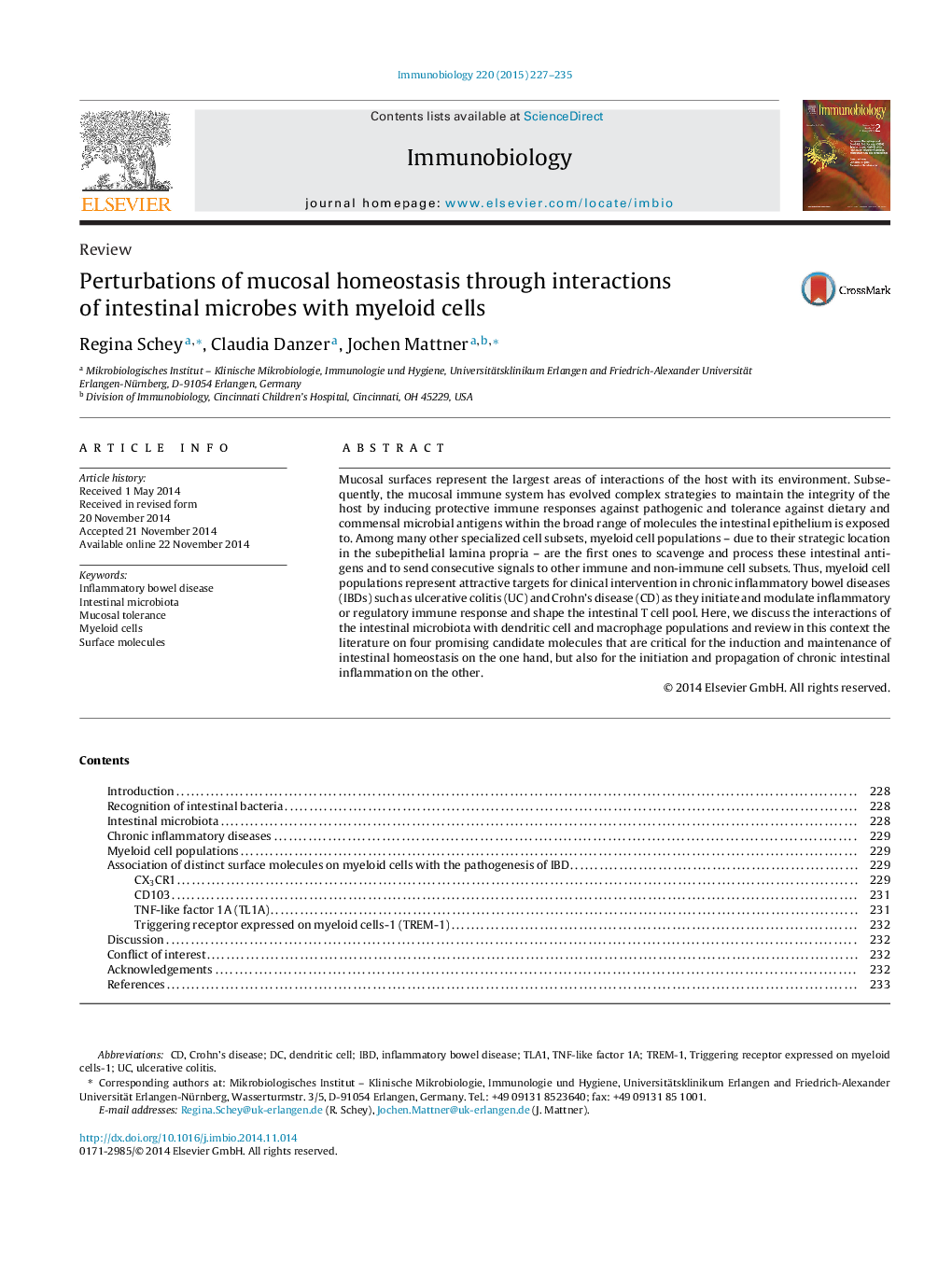| Article ID | Journal | Published Year | Pages | File Type |
|---|---|---|---|---|
| 10940981 | Immunobiology | 2015 | 9 Pages |
Abstract
Mucosal surfaces represent the largest areas of interactions of the host with its environment. Subsequently, the mucosal immune system has evolved complex strategies to maintain the integrity of the host by inducing protective immune responses against pathogenic and tolerance against dietary and commensal microbial antigens within the broad range of molecules the intestinal epithelium is exposed to. Among many other specialized cell subsets, myeloid cell populations - due to their strategic location in the subepithelial lamina propria - are the first ones to scavenge and process these intestinal antigens and to send consecutive signals to other immune and non-immune cell subsets. Thus, myeloid cell populations represent attractive targets for clinical intervention in chronic inflammatory bowel diseases (IBDs) such as ulcerative colitis (UC) and Crohn's disease (CD) as they initiate and modulate inflammatory or regulatory immune response and shape the intestinal T cell pool. Here, we discuss the interactions of the intestinal microbiota with dendritic cell and macrophage populations and review in this context the literature on four promising candidate molecules that are critical for the induction and maintenance of intestinal homeostasis on the one hand, but also for the initiation and propagation of chronic intestinal inflammation on the other.
Keywords
Related Topics
Life Sciences
Biochemistry, Genetics and Molecular Biology
Cell Biology
Authors
Regina Schey, Claudia Danzer, Jochen Mattner,
